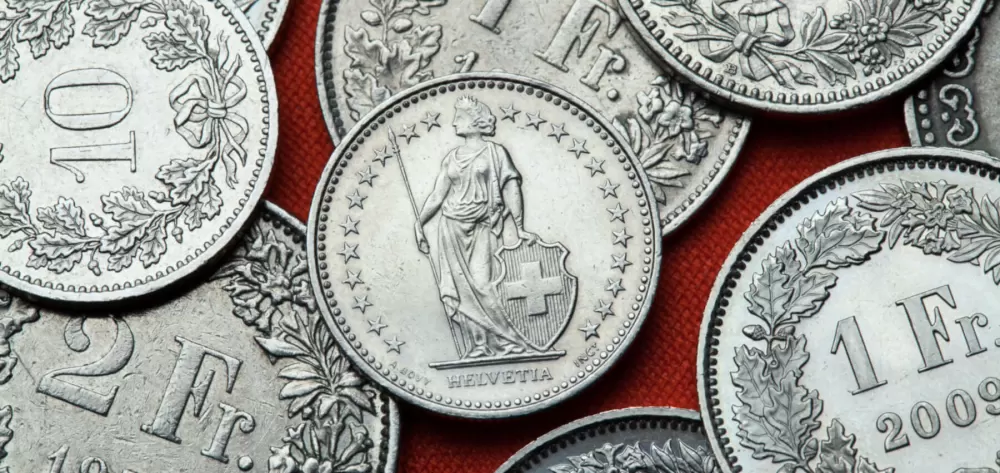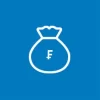Digitization is increasingly affecting the way we pay for goods and services, and the coronavirus scare will likely add to this trend. Using debit cards, credit cards and mobile wallets to settle payments is becoming more common in Switzerland. The vast majority of “money” is already in the form of digitally-recorded account balances.
Calls to abolish cash are increasingly being sounded by commercial banks, some economists and even by some central banks. The independent online comparison service moneyland.ch does not agree with that position. Cash, like other payment methods, has a number of important advantages in addition to its disadvantages.
The advantages of cash:
1. Privacy
Cash payments offer far greater privacy than other payment methods. Transactions performed using credit cards, prepaid cards and debit cards are recorded by the financial institutions involved. Mobile wallet transactions are recorded by tech giants like Google and Apple in addition to financial services providers. In many countries, the state can also access transaction information at any time. The privacy offered by cash is a factor which annoys many governments.
2. Independence from commercial banks
The balances of bank accounts, prepaid accounts and digital wallets are simply a debt claim against the bank or other financial services provider. In the event of a bank failure, this “digital money” may be partially or fully lost. Although Swiss commercial banks have a depositor protection scheme, this scheme only insured up to 100,000 francs per customer and bank. Additionally, the maximum protection provided by the scheme is eight billion francs for all Swiss bank customers combined.
Cash, on the other hand, is legal tender and not a debt claim against a commercial bank. You can easily store it in a bank safe deposit box, in a non-bank safe deposit box, or in a secure safe at home.
3. No negative interest
Negative interest rates have also been charged on private and savings accounts in recent years. In the meantime, the situation has eased again with the rising interest rate level. However, depending on how interest rates develop in the future, negative interest rates might be applied to accounts with small balances. In the case of more comprehensive negative interest rates, it is feared that many savers could simultaneously withdraw their deposits as cash. Some central banks cite the need to enforce negative interest charges as a reason to abolish cash. However, it is possible for governments to create artificial disadvantages to holding cash rather than account balances – and these measures could negate this benefit.
4. No online theft
As digitization has progressed, cybercrime and online fraud has progressed as well. Swiss bank and credit card accounts are regularly the target of cyber criminals and fraudsters. Cash can be physically stolen at one location, but “digital money” can be stolen from anywhere, at any time.
5. Less overspending
Debt counselors recommend only carrying cash, and only the exact amount of cash budgeted for your immediate purchases. In this way, you avoid impulse purchases because spending is limited by available money. Numerous studies have shown that consumers spend more when using digital payment methods than they do when spending cash. Credit cards pose an additional risk for consumers by enabling payment on credit, which often results in debt.
6. Low costs for merchants
Payment networks like Visa and Mastercard, merchant acquirers like Worldline and card issuers all charge fees when you use your card to pay. These interchange fees must be paid by the shops, restaurants and other merchants which you make purchases from. To varying degrees, merchants pass on these extra costs to customers by working them into price tags. There is a cost for businesses to handling cash, but for smaller businesses in particular, cash handling costs are generally lower than the merchant fees charged by digital payment service providers.
7. Crisis-resistance
Banknotes and coins can be used for commercial transactions even when technical problems, cyber-attacks, and/or disruptions to power supplies or telecom networks render other payment methods unusable. Many governments – including the Swiss government – recommend keeping an emergency supply of cash in small denominations at home in case of disruptions to cashless payment services, banks and ATMs.
The disadvantages of cash:
1. Hygiene concerns
Coins and banknotes exchange hands often. The coronavirus scare has once again thrown the concerns about cash and hygiene into the spotlight. It is technically possible for microorganisms to survive on banknotes and coins for limited periods of time. An increasing number of people consider cash to be unhygienic. Naturally, microorganisms are also present on payment cards and smartphones, but contactless technology has made transmission less likely.
2. Risk of loss
Cash can be lost or stolen fairly easily. Of course, smartphones and payment cards are easily lost or stolen as well, but mobile wallets are difficult to access and you can have your card issuer freeze your account to prevent fraudulent use.
3. Less convenience
Large amounts of banknotes and coins take up a fair bit of space compared to a payment card. A smartphone is a lot bulkier, but the majority of consumers now carry a smartphone with them anyway. Additionally, making contactless payments with a smartphone or card is typically faster and easier than paying with cash.
4. More complicated currency exchanges
Exchanging money for foreign currencies in cash requires more effort than digital payments in which card issuers automatically handle currency exchanges. Additionally, the fees charged by Swiss banks and foreign money changers are often high. It is important to note that digital payments (like credit card transactions) in foreign currencies typically command high foreign transaction fees as well. However, a number of app-based financial services now relatively low fees for in-app currency exchanges and card payments in foreign currencies.
5. Undeclared money and counterfeiting
A widely-sounded argument for the abolition of cash is that it can be hoarded by criminals – in the form of 1000-franc notes, for example. It is also argued that taxpayers can avoid taxes by illegally refusing to declare cash income or wealth. Additionally, it is technically possible to counterfeit banknotes and coins. In practice, criminal organizations have long been moving away from cash to digital assets (including cryptocurrencies like Bitcoin) and non-cash physical assets.
Compare financial products now:
Bank accounts and payment cards
Investment and retirement planning
Loans and mortgages








